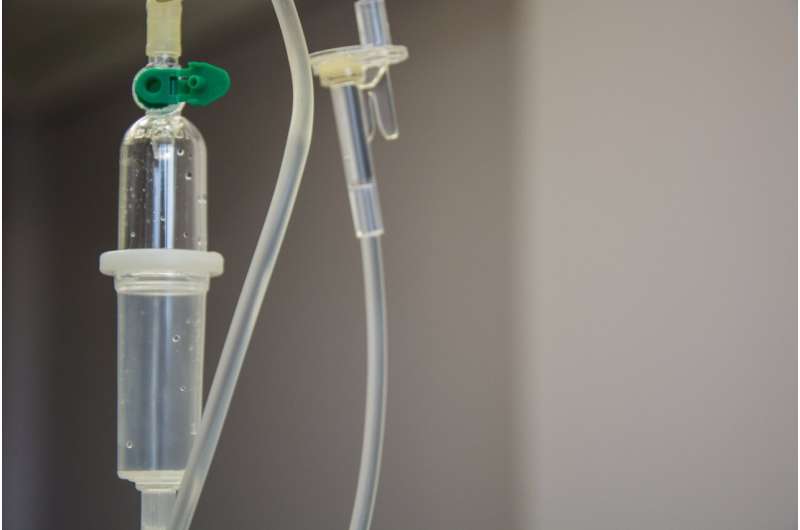Credit: Unsplash/CC0 Public Domain
Results from the NRG Oncology Phase II NRG-GOG-0279 clinical study indicate that women with locally advanced squamous cell carcinoma of the vulva who received gemcitabine concurrently with cisplatin and intensity-modulated radiation therapy (IMRT) exhibited increased rate of pathologic complete responses (pCR). This is also the first clinical trial to standardize IMRT. These findings were presented during the Plenary Session at the Society of Gynecologic Oncology (SGO) 2023 Annual Meeting on Women's Cancer.
"Women with locally advanced vulvar cancer are currently treated with standard chemoradiation, which results in a high number of patients experiencing locoregional recurrence in their lifetime. NRG-GOG-0279 was designed to determine whether the addition of gemcitabine to cisplatin and higher doses of radiation administered with IMRT, could improve the efficacy of the treatment while avoiding added toxicity for these patients," stated Neil S. Horowitz, MD, of the Brigham and Women's Hospital and Harvard Medical School and the lead author of the NRG-GOG-0279 abstract.
NRG-GOG-0279 analyzed 52 eligible and treated women with locally advanced vulvar cancer (LAVC) that was not amendable to surgery. Patients received 64 Gy to the vulva and 50 or 64 Gy to the groins and low pelvis for positive nodes and unresectable nodes respectively. Cisplatin (40mg/m2) and gemcitabine (50mg/m2) were administered weekly throughout IMRT. Response was then assessed at six to eight weeks following treatment.
NRG-GOG-0279 assessed pCR as the primary endpoint, with a main goal of improving pCR outcomes by 20% or more when compared to the pCR rate of 50% reported for the GOG-0205 trial. If successful, this would warrant further investigation into this study approach. The trial also evaluated complete clinical response (cCR), PFS, overall survival (OS), and adverse events as secondary endpoints.
Patients on the trial received a median of six cycles of gemcitabine and cisplatin. Of the 44 patients who had radiation therapy compliance reviewed 33 (75%) had high quality IMRT and 11 patients (25%) had minor deviations. Of the 44 evaluable patients, 38 patients achieved pCR (73.1%, 90% CI 61.2–83.0%) and 37 had cCR (71.2%, 90%CI 59.1–81.3%). At the median follow-up of 51 months, PFS at 12 months was 74% (90%CI 62.2–82.7%) and OS at 24 months was 69.6% (90%CI 57.4–79%). There was one grade 5 toxicity, 25 patients experienced grade 3 adverse events and 18 patients experienced grade 4 adverse events. Common grade 3 and 4 adverse events included radiation dermatitis, leukopenia, thrombocytopenia, and electrolyte abnormalities.
"While this approach improved survival and response outcomes for this population, it is important to note that future research is needed to find the ideal treatment regimen for this patient population to improve clinical outcomes further while minimizing toxicity," Dr. Horowitz added.
More information: N.S. Horowitz et al, A phase II trial evaluating cisplatin and gemcitabine concurrent with intensity-modulated radiation therapy (Imrt) in the treatment of locally advanced squamous cell carcinoma of the vulva: An NRG Oncology Group study. SGO (Society of Gynecologic Oncology)
Provided by NRG Oncology























